On Stacie Garcia-Moon’s first day of chemotherapy this past June, she sat in her infusion chair and wept her way through a box of Kleenex.
As one of the youngest patients in the infusion clinic that morning, Garcia-Moon, a 43-year-old mother of three from Lowell, Michigan, couldn’t shake her overwhelming fear and grief.
“I was like, ‘Oh my God, this is real,’” she said. “‘I am so weak.’”
As she looked down the row of infusion stations inside the Spectrum Health Lemmen-Holton Cancer Pavilion, lined up along the windows overlooking downtown Grand Rapids, Garcia-Moon couldn’t miss the contrast: three resilient women receiving their chemo infusions with resolve.
She wanted to be like them.
“I see these strong women looking out that window, taking their chemo like it’s nothing, wearing their headwraps with confidence … and I remember saying to my nurse, Michelle, ‘I want to be that. I want to be that woman over there,’” Garcia-Moon said.
“And Michelle was like, ‘Stacie, they were there, too. And you will be that person. Give yourself that time. Feel sad, feel all those feelings.’”
With an army of support behind her, Garcia-Moon made her way through the dark valley.
And though she hasn’t yet reached the end of her breast cancer journey, she now counts herself among the ranks of that sorority of strong women.
“We call each other pink sisters,” she said.
“They’re like, ‘Come on, pink sister, you can do it.’ And I’m like, ‘I like that! Yeah, we’re sisters, pink sisters. All right.’
“That’s the support. I feed off of that.”
‘A whirlwind’
Garcia-Moon has her primary care provider, Natasha DeHaan, NP, to thank for her timely diagnosis.
That’s who nudged her to get a mammogram when she toyed with skipping a year.
Screening is preventive, available and covered by insurance, DeHaan reminded her. Why wouldn’t you do it?
So Garcia-Moon scheduled her screening.
When it showed an abnormality, she went for a follow-up mammogram. Then the radiologist ordered a same-day ultrasound.
The right breast showed a lump. After a pair of biopsies, she learned she had invasive cancer.
She took the news hard. Her thoughts leapt to her children’s future.
“All I kept thinking was, ‘I’m gonna die,’ you know? ‘I’m gonna die,’” she said.
The devastating phone call came when Garcia-Moon, a registered nurse, was at work at the Spectrum Health Fred and Lena Meijer Heart Center. She’s spent the past 16 years there, working in the cardiac cath lab.
Unable to process the news on her own, she found her supervisor, who helped her talk things through before sending her home to be with her husband, Tim.
The next day, Garcia-Moon received a second call, this one from Tracy Waldherr, RN, a nurse navigator with the Spectrum Health breast cancer multispecialty team.
From that first conversation, Waldherr became Garcia-Moon’s go-to person, her guide in dealing with the questions, emotions and logistics involved with her cancer treatment.
“We talked about this cancer not defining her,” Waldherr said. “It’s a pie slice of her life … but it doesn’t define who she is.”
Waldherr reassured her this diagnosis didn’t represent a death sentence.
“I said, ‘Stacie, I don’t have you pegged as dying. I look at you as living. And we can tackle this together,’” she said.
Within 24 hours of that call, Garcia-Moon had a comprehensive care team—a nurse navigator, cancer surgeon, plastic surgeon, oncologist, genetics counselor and social worker.
Just days later, she found herself sitting in her cancer surgeon’s office discussing the procedure and setting a date.
“Ten days. A whirlwind,” she said. “A week and a half from ‘Let’s just take some pictures’ to ‘You have cancer and now we have to get it out.’ That was a terrible time for me.”
But if Garcia-Moon has a superpower, it’s her buoyant spirit.
“She’s just a bright light, and she accepted her diagnosis with grace,” Waldherr said. “Not without any fear or sadness, but with grace.”
She gathered her loved ones around her and refused to go it alone.
‘A wonderful feeling’
Garcia-Moon’s surgery—a bilateral mastectomy with simultaneous breast reconstruction—was set for April 12.
Working across the table from each other, Jayne Paulson, MD, performed the mastectomy while Matthew Martin, MD, carried out the initial phase of reconstruction.
“I had a lot of people working for me, pushing for me, advocating for me and being there for me,” Garcia-Moon said. “It was a wonderful feeling to have that support.”
When the postsurgical pathology report came back, Garcia-Moon’s team advised her to pursue chemotherapy. The five-month regimen would begin in June.
She now faced a new emotional hurdle: the prospect of hair loss.
“I had beautiful hair—thick, curly ringlets, and that was sort of my thing,” Garcia-Moon said. “I’m short, but my hair was kind of my identity. … So when it was gone, that was really tough.”
Waldherr assured her that “it’s OK to grieve your hair” and pointed her ahead of time to a local salon’s Beautiful You program, which caters to women experiencing cancer.
A stylist there helped her donate her locks after a pre-chemo haircut.
A more dramatic change came shortly before her first round of chemo: a surprise buzzcut.
One Saturday, she invited a few family members for lunch. After lunch, she called the adults and children together and invited them to join her for a “shave party” outside. She explained what this meant and encouraged the kids to ask questions.
“They knew I had cancer, but they didn’t quite know what the side effects could be,” she said.
“I told them, ‘I think it will be a lot easier for me to handle if I see little stuff coming out (rather) than long strands of hair.’
But I also said, ‘You know, this is a great teaching moment for you young kids. This is how you support someone. … If you hold my hand or if you root for me … that’s called support, and that’s what I need the most.’”
The group embraced her message and cheered her on. Her husband, mom, sister, brother and oldest daughter all helped out, each taking a clipper swipe across her head.
Through laughter and tears, Garcia-Moon got what she sought: a circle of support and a sense of agency over her looming hair loss.
“It’s kind of like taking control of something that you don’t have a whole lot of control (over),” she said.
‘Incredibly grateful’
Garcia-Moon’s treatment has gone exceptionally well so far, according to Amy VanderWoude, MD, an oncologist with the Cancer and Hematology Centers of Western Michigan and a member of the Spectrum Health breast cancer multispecialty team.
Garcia-Moon is fortunate to have had minimal side effects, Dr. VanderWoude said. Then again, that’s becoming more common for chemotherapy patients.
“A lot of people imagine being really sick and throwing up a lot, and that’s not the norm for patients anymore, because we have a lot of support drugs,” she said.
“They could feel a little queasy, and they do feel tired, but they’re not in bed all the time.”
After Garcia-Moon’s chemotherapy wraps up in October, she faces radiation therapy in November and December.
In the new year, she’ll begin antihormonal therapy in pill form—part of her treatment because of her tumor type.
And six months later, she’ll undergo her final reconstructive surgery.
The road is long, but Garcia-Moon—remarkably, implausibly—finds herself feeling grateful for what she’s experienced this year.
“There have been so many lessons that I have learned through this journey that I don’t think I would have learned otherwise, and I am so incredibly grateful—even despite the diagnosis and what I’ve been through.”
Lessons about community. About caring. About perseverance.
“I have seen God’s love in everyone who has offered texts, meals, a visit—it’s just been unbelievable,” she said.
“There was a week where about eight of my co-workers, the guys, shaved their heads when they knew that I was going to be losing my hair. And then the following week, three girls did it. … They were telling me, ‘You’re not your hair; you’re way deeper than your hair … and we love you no matter what.’”
Even strangers have rallied around. A quilting group gave her a prayer quilt, and Lowell High School honored her at its annual Pink Arrow football game for cancer awareness.
“There’s just no words to put to being the recipient of such love,” she said.
Garcia-Moon recognizes not all of her pink sisters find themselves in the same situation. Some experience more toxicity in response to their chemotherapy. Others lack a solid support network.
Knowing this makes her want to get to the other side of this disease faster, so she can spread the love and learning around.
“Being a nurse, I always want to help a patient,” she said. “If I can be an inspiration, a counselor … that’s what I want. I want people to not be afraid, even though I was.”
As a patient who is also a health care provider, Garcia-Moon has found a significant silver lining, Dr. VanderWoude said.
“It’s hard for health care professionals to be on the opposite side, the receiving side, of health care, but yet they learn so much and they can be much better at their own job,” she said.
“I’m sure she’ll be that for many patients that she meets.”
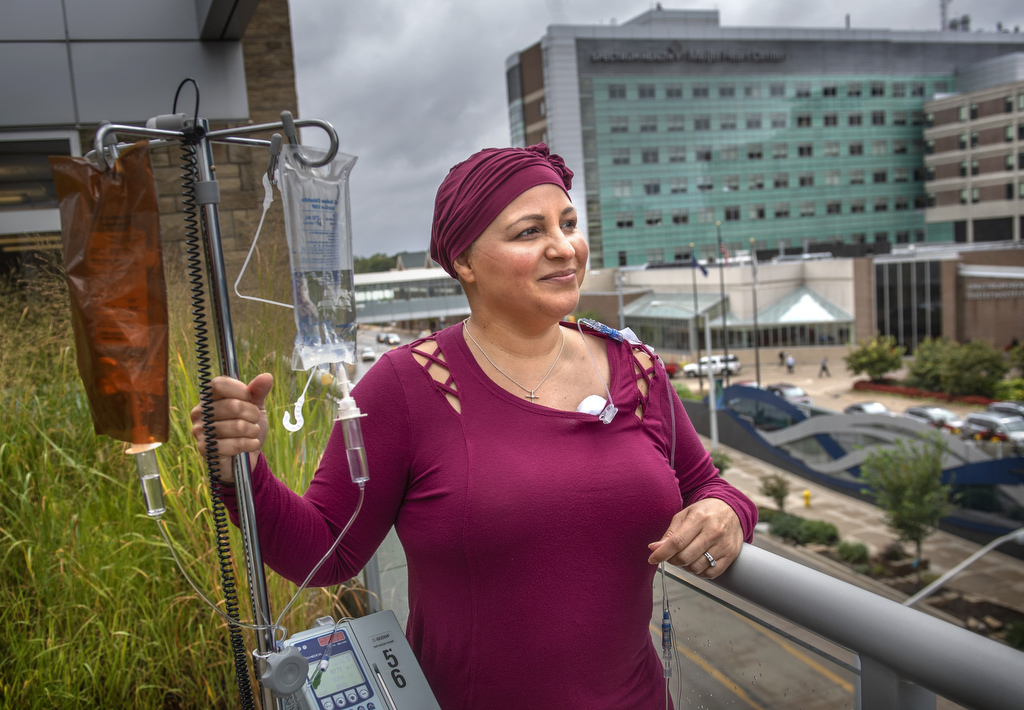
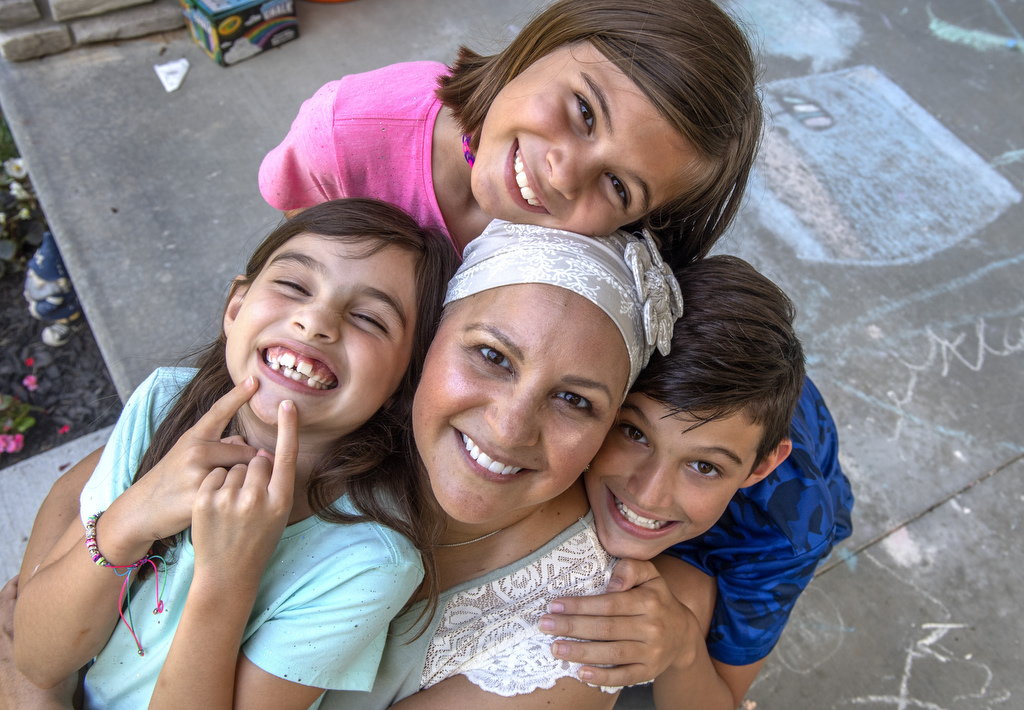

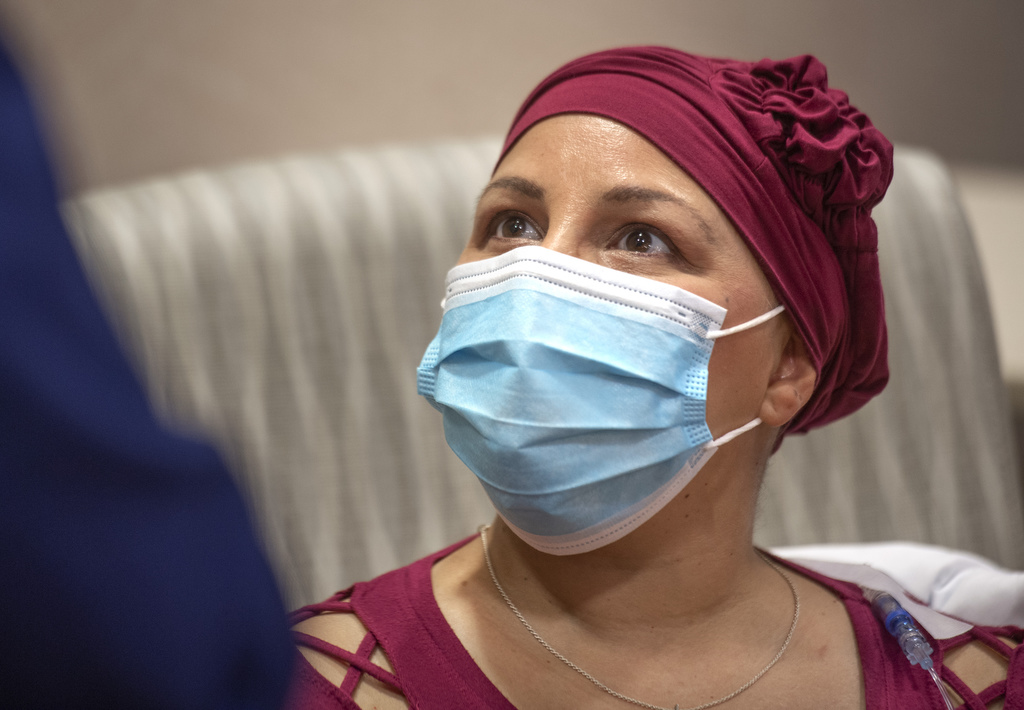

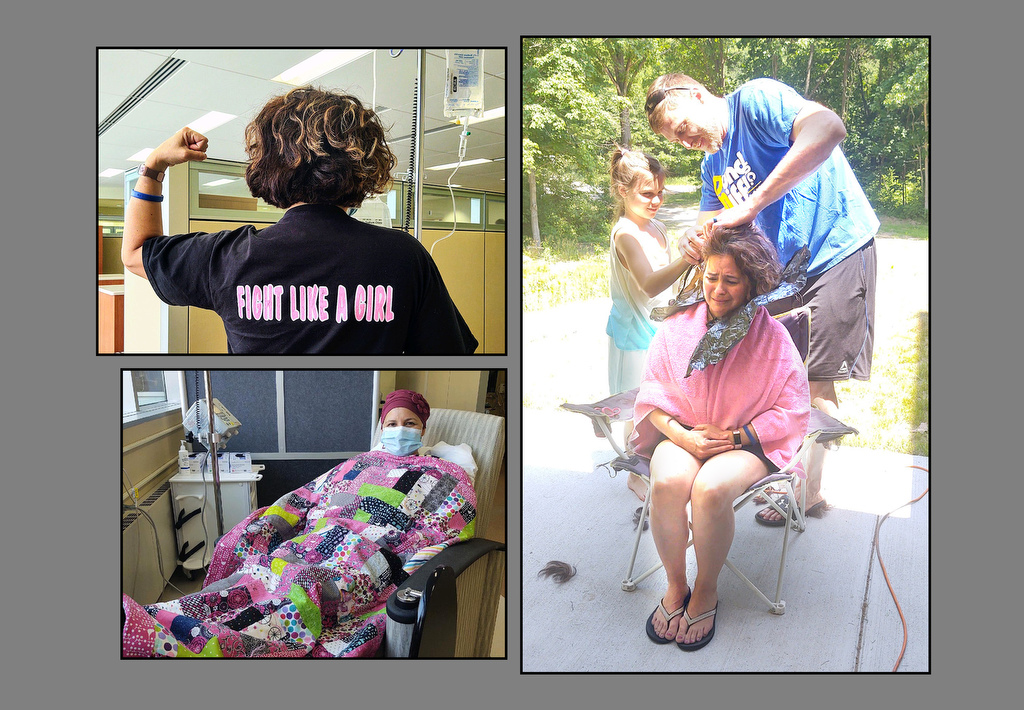
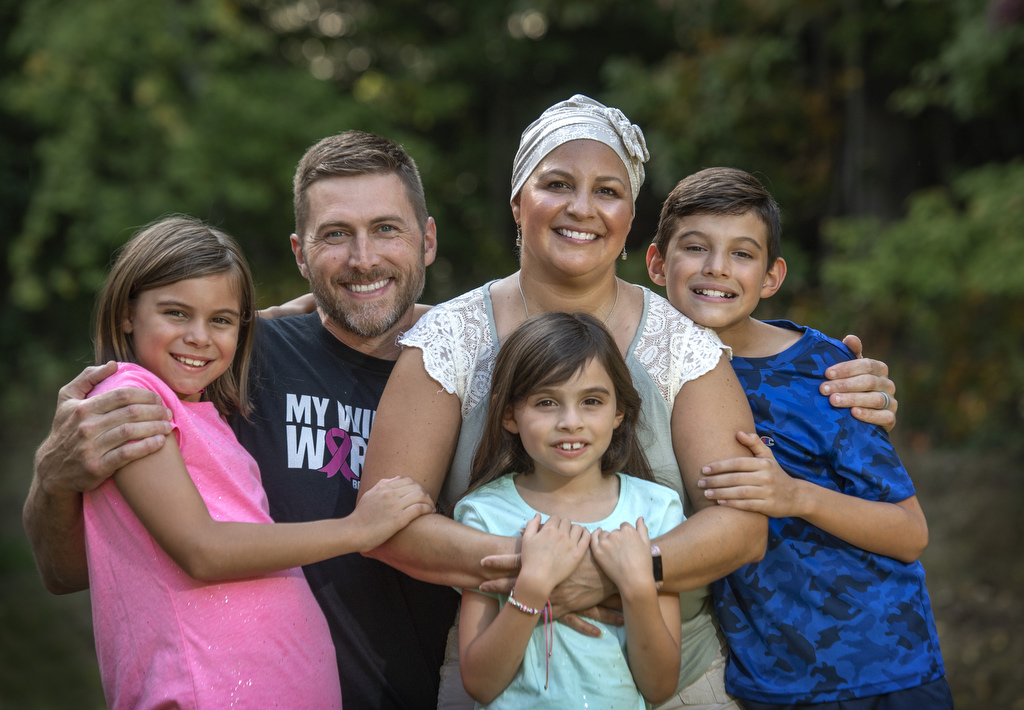
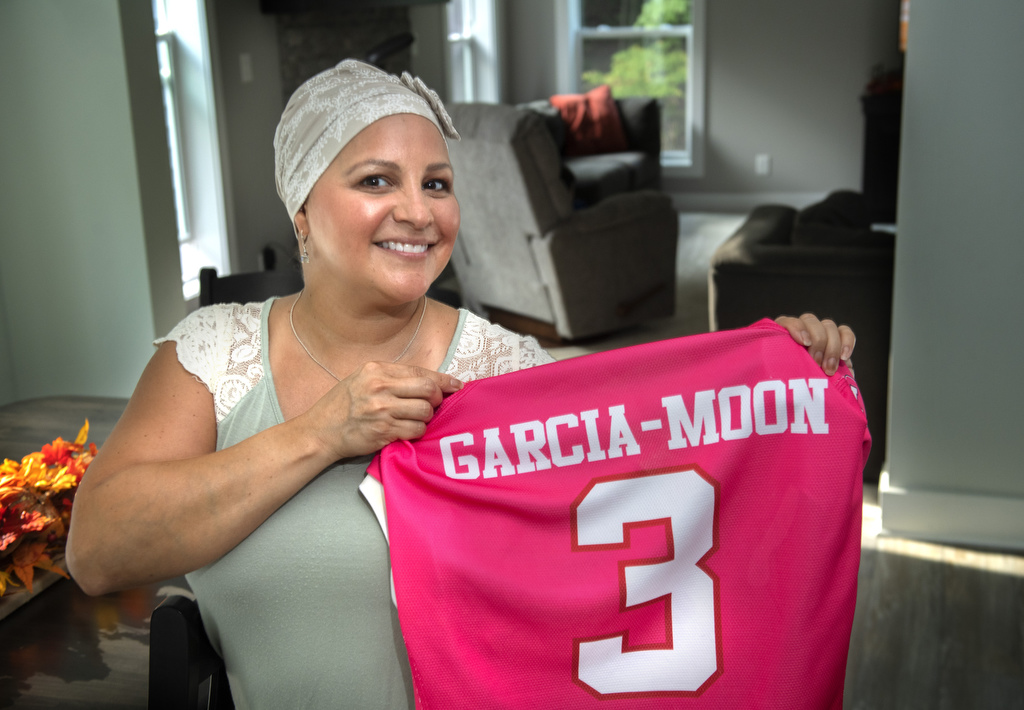
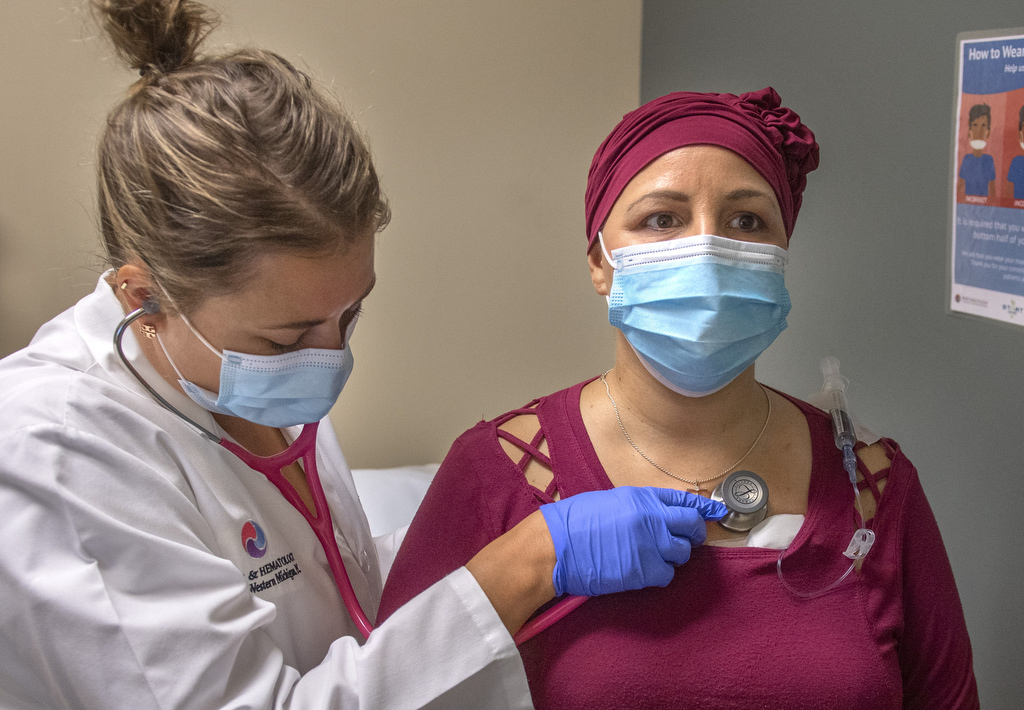
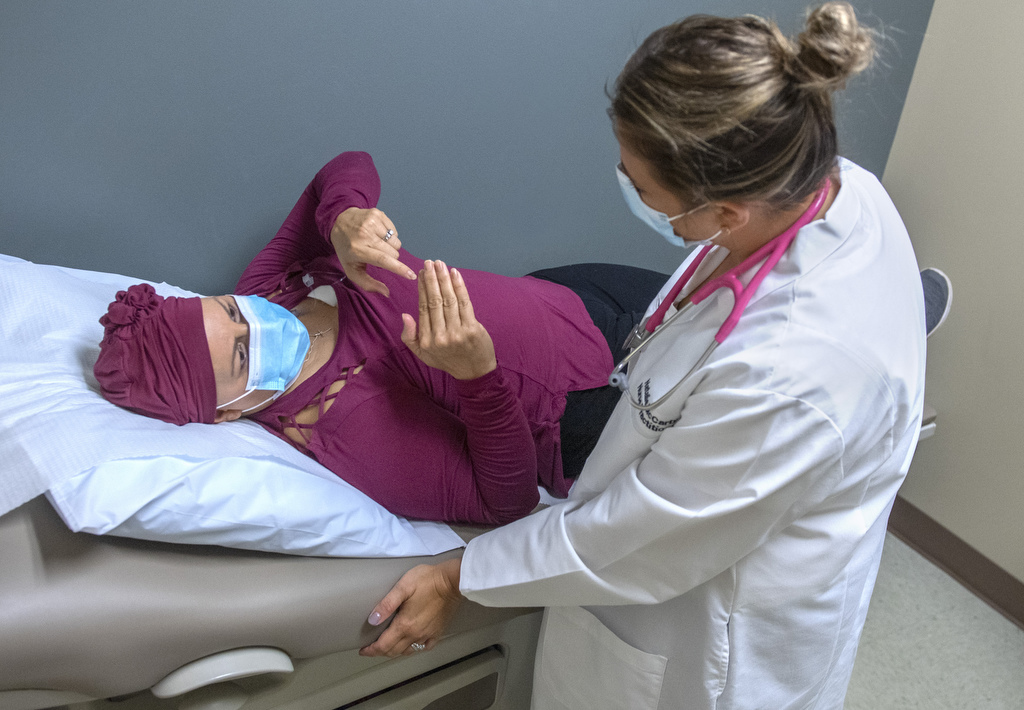
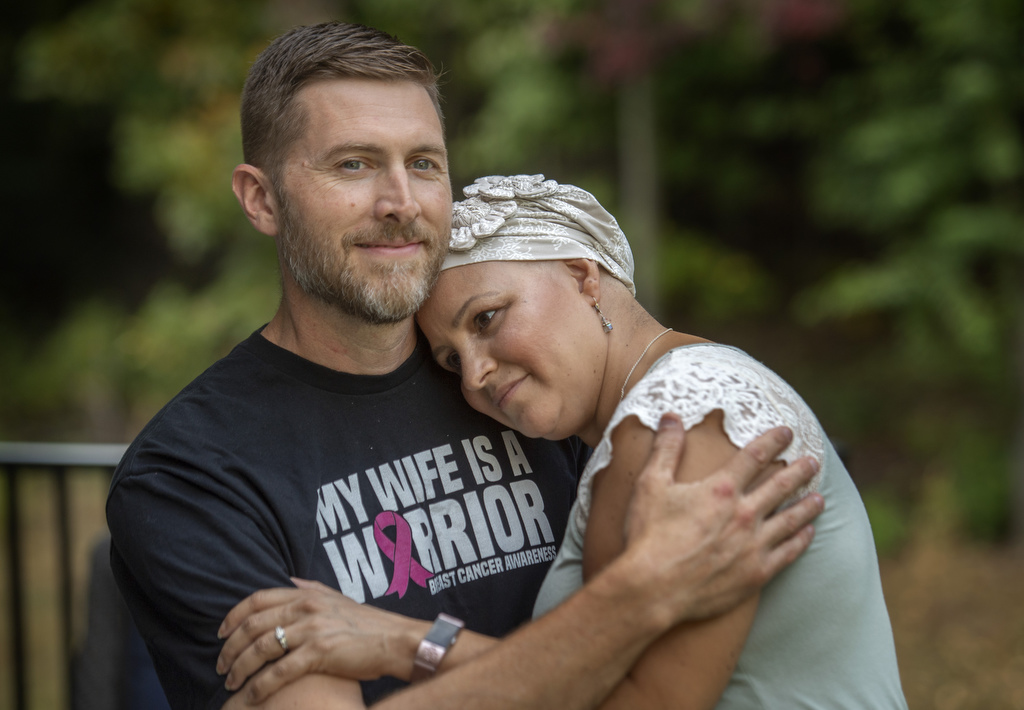
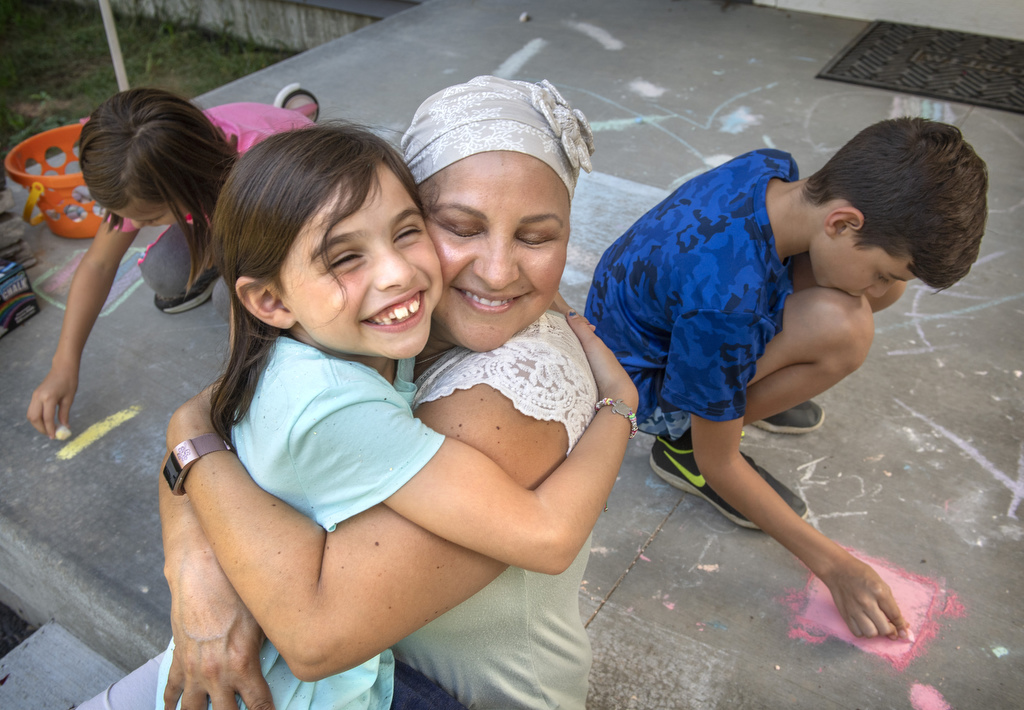
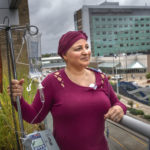
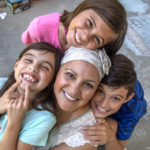
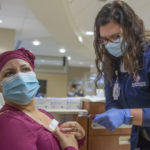
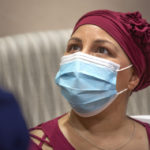
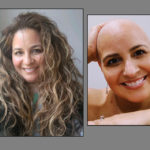
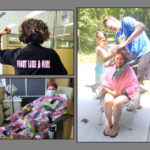
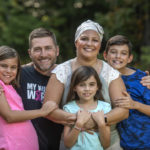





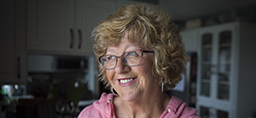 /a>
/a>
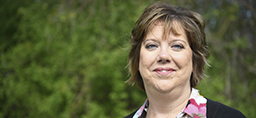 /a>
/a>
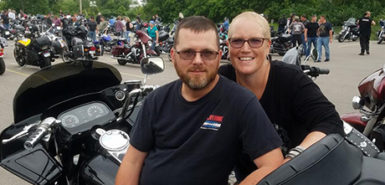 /a>
/a>
I’ve known Stacie since we were kids. She is so spunky, funny, and tons of fun to be around. She is the type of person who is always happy and life loving! This diagnosis was never something any of us wanted to hear, but the best thing we could and can do is love, take care and support each other through the journey! I pray God completely heals her body, and she is able to go on in life giving to others because that’s the type of person she is! If you’ve met Stacie, you know this and exactly what I’m talking about. Love you Stac, and cherishing our friendship is something I will always do! Together we can defeat cancer!!! LOVE YOU!
Stacie, you’re awesome! Hugs!
What a beautiful story!! Stacie thank you for sharing, many prayers for your continued healing and strength to fight this beast we call cancer. You are gorgeous with or without hair girl, and such a beautiful family. God Bless You and Your Family
To the warrior who has taught me many things! I can’t articulate how much I look up to you. You have always been a strong voice in the cath lab. I admire that! You have been through true life struggles with family and CA and have come out on top every time. I admire that! You made it through your chemo and reconstructive surgery like a MF boss. I admire that! You have taken a lot of hardship and turned it into gratitude. I admire that! I love you Stacie and I will always be there to support you in anyway I can. Love Jude 🥰❤️
Hey girlfriend! I too am a pink sister. My youngest step-daughter was pregnant with twins and I was months away from being a “Grammy “ for the first time. After the initial shock of the diagnosis, I needed to get ready for the one remaining twin. 2018 was a whirlwind year. Fortunately my lump was very small and post lumpectomy I did not need any chemo or radiation! I will pray for you daily as you complete your treatment. May God bless you with Good Health and a continued effort to share your journey with words and actions to inspire those who follow on this path. Our Cardiac Cath Lab Family is so strong, supportive and full of love 💕.
Stacie, just today I had breast cancer surgery, but my regimen is no where near as difficult as yours. You are doing an awesome job, and it seems that you are already making a positive difference in the battle against this disease! You should be so proud of yourself!
P.S. I am working with the multispecialty team and have Tracy W. as my navigator too! She is awesome.
We couldn’t ask for a better care concept! We had the same kind of team for my husband’s cancer treatment, and knew that I was in the best of hands! It’s too bad other hospitals don’t offer this type of treatment!
Best wishes to you to a successful finish to your treatment!